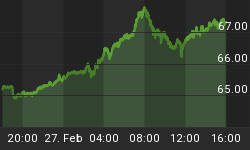The U.S. dollar, which has staged a counter-trend rally all year, looks like it is finally poised to resume its historic decline. Although the dollar actually weakened this year against several secondary currencies, the headlines have focused principally on its 2005 gains against its two principal rivals, the euro and the yen. However, recent reversals and technical action in both currencies strongly suggests the rally has finally exhausted itself.
Earlier this year it also appeared that the dollar's bear market rally had come to an end. However, much like a drowning man, the dollar managed to make one more lunge upwards, marginally exceeding its July peak. That head fake was a classic sucker's rally, as it emboldened dollar bulls, and caused tepid dollar bears to throw in the towel. Speculators, now overwhelming long the dollar, will likely add to the dollar's woes, as they rush to cut losses on losing positions, or preserve rapidly fading profits.
The problem for those betting on dollar strength is that despite its year long rally, the fundamentals have actually deteriorated substantially. Nothing illustrates that fact better than Wednesday's release of October's record 68.9 billion dollar trade deficit, and Thursday's report that Americans hocked a record 108.6 billion dollars worth of stocks and bonds to foreign investors in order to finance it. America's unprecedented consumption binge and net accumulation of external liabilities evidences twin economic failures of historic proportions.
The unfortunate reality is that as bad as October's record setting economic failures were, they will likely be exceeded in the months ahead. In order for America's bubble economy to continue expanding, Americans must continue spending. However, the two key elements required to achieve this, consumer goods and the means to pay for them, are both lacking. Therefore any further expansion requires Americans to import greater quantities of the former and go even deeper into debt to finance the latter.
With the ECB now raising interest rates, and the BOJ likely to soon follow, the dollar's perceived yield advantage will quickly fade. Due to its status as the world's largest debtor nation, higher global interest rates will hit the U.S. economy harder than any other, putting further downward pressure on the dollar. However my hunch is that this time foreign central banks will not come to its rescue. If that is indeed the case, there will be no buyers for speculators to sell to, and Ben "Crash and" Bernanke might be calling in those helicopters sooner than he had planned.
Do not wait until you here the sounds of the propellers. Get out of the dollar now. Subscribe to my free online newsletter at http://www.europac.net/newsletter/newsletter.asp and discover my latest recommendations for global diversification.















